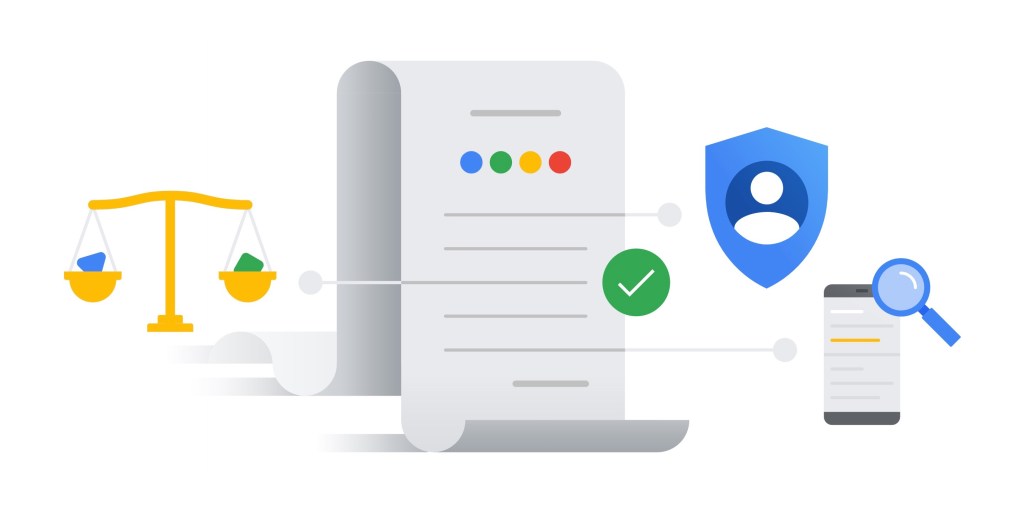Google updating terms of service to improve readability, include Chrome/OS & Drive - 3 minutes read
 Google today began alerting users of a planned update to its terms of service (ToS) on March 31. There are four primary changes dealing with “improved readability” and “better communication,” as well as adding Chrome/OS and Google Drive to the ToS. According to the company, there are now changes to its Privacy Policy.
Google today began alerting users of a planned update to its terms of service (ToS) on March 31. There are four primary changes dealing with “improved readability” and “better communication,” as well as adding Chrome/OS and Google Drive to the ToS. According to the company, there are now changes to its Privacy Policy.Visiting Google Search today might show a blue banner that announces the coming changes at the end of next month, and invites users to “Review” or confirm with “Got it.”
We’re updating our Terms of Service. Get to know our new Terms before they take effect on March 31, 2020.
Google links to a “Summary of changes” that has bullet points for the 18 primary sections to identify when something is new. This includes entirely new sections, adding links, providing clarifications, and more.
In a FAQ at the bottom of this page, Google explains how these “changes reflect an evolving regulatory environment and also our ongoing efforts to simplify how we communicate with users.” YouTube last year also updated its ToS.
There are four main changes, with Drive, Chrome, and Chrome OS notably moving to the “Google-wide Terms of Service.” In practice, there are still “service-specific additional terms” and was done to help users better understand general terms. Meanwhile, the company’s Privacy Policy is not changing.
Improved readability: While our Terms remain a legal document, we’ve done our best to make them easier to understand, including by adding links to useful information and providing definitions.
While our Terms remain a legal document, we’ve done our best to make them easier to understand, including by adding links to useful information and providing definitions. Better communication: We’ve clearly explained when we’ll make changes to our services (like adding or removing a feature) and when we’ll restrict or end a user’s access. And we’ll do more to notify you when a change negatively impacts your experience on our services.
We’ve clearly explained when we’ll make changes to our services (like adding or removing a feature) and when we’ll restrict or end a user’s access. And we’ll do more to notify you when a change negatively impacts your experience on our services. Adding Google Chrome, Google Chrome OS, and Google Drive to the Terms: Our improved Terms now cover Google Chrome, Google Chrome OS, and Google Drive, which also have service-specific terms and policies to help you understand what’s unique to those services.
Our improved Terms now cover Google Chrome, Google Chrome OS, and Google Drive, which also have service-specific terms and policies to help you understand what’s unique to those services. No changes to our Privacy Policy: We’re not making any changes to the Google Privacy Policy and we haven’t made any changes to the way we treat your information. As a reminder, you can always visit your Google Account to review your privacy settings and manage how your data is used.
FTC: We use income earning auto affiliate links. More.
Check out 9to5Google on YouTube for more news:
Source: 9to5google.com
Powered by NewsAPI.org